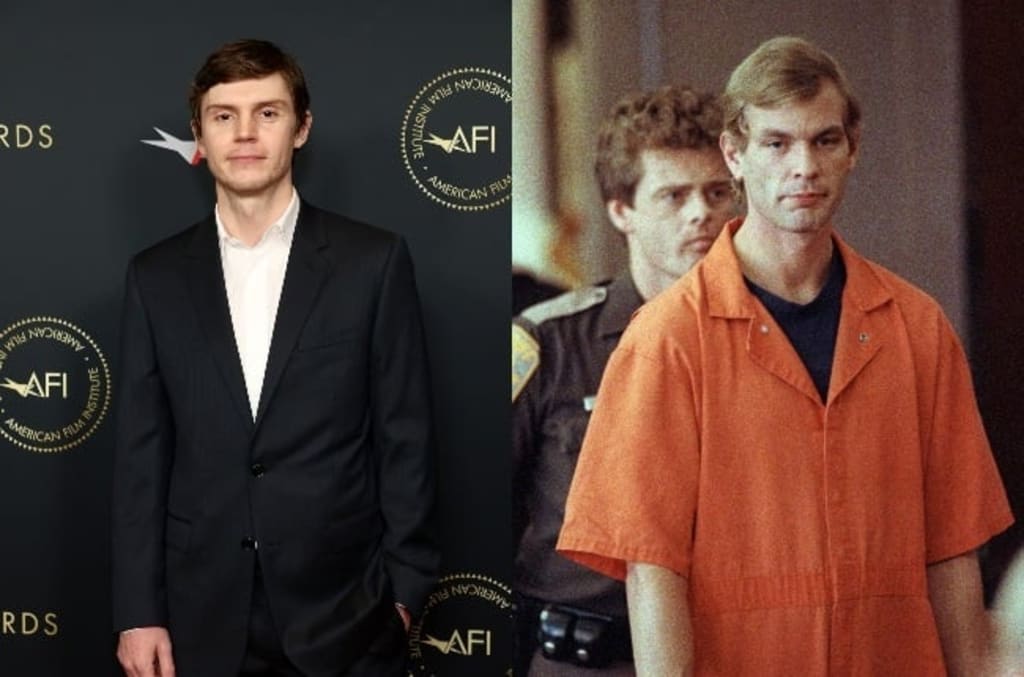The Dark Tale: Netflix’s Portrayal of Jeffrey Dahmer
Let Us Explore The Netflix Original Series DAHMER-Monster

Introduction to Jeffrey Dahmer’s Infamous Crimes
Jeffrey Dahmer, infamously dubbed the Milwaukee Cannibal, stands as one of the most chilling figures in the annals of American crime. His grotesque spree of murder, necrophilia, and cannibalism that unraveled from the late 1970s through his eventual apprehension in 1991 has etched him into the public consciousness as a symbol of pure evil. Dahmer targeted teen boys and young men, many of whom were vulnerable, not only showcasing the depravity of his actions but also casting a harsh light on the societal and systemic failures that allowed him to operate with impunity for so long.
The prolonged duration over which Dahmer managed to evade capture, despite the brutality and number of his crimes, underscores significant lapses in law enforcement and societal issues. It points to a grim reality where biases, negligence, and the lack of thorough investigative processes can enable such predators to continue their reign of terror unchallenged. This case has served as a grim lesson in the importance of vigilance, the need for accountability within law enforcement, and the critical role that societal attitudes play in the effectiveness of criminal investigations. The Dahmer saga is not only horrifying for the sheer inhumanity of his acts but also for the light it shines on the systemic and institutional failures that facilitated his long period of freedom to commit these atrocities.
Overview of Jeffrey Dahmer’s Crimes
Jeffrey Dahmer shocked the world when the grim contents of his Milwaukee apartment were uncovered following his arrest in 1991. Investigators found a macabre collection of human remains, including skulls and other body parts, that Dahmer had preserved as grim trophies of his crimes. This discovery unveiled the horrific nature of his activities, which included the murder of seventeen young men and boys, acts of necrophilia, and instances of cannibalism. Dahmer’s confessions to sixteen murders in Wisconsin, along with one in Ohio, opened a dark window into the mind of a serial killer, revealing not only the breadth of his gruesome activities but also his methodical approach to luring victims under the guise of friendship or professional photography sessions before their untimely deaths.
Despite the monstrous nature of his actions, Dahmer managed to evade law enforcement’s radar for years, in part due to a combination of his deceptive appearance of normalcy and significant systemic failures within the criminal justice system. This period of unchecked violence highlighted the catastrophic consequences of disregarding evidence and failing to connect the dots between multiple missing persons reports. Furthermore, Dahmer’s ability to continue his killing spree without detection for so long also pointed to broader societal issues, including the marginalization of his victims — many of whom were young men from minority communities. The case emphatically underscored the necessity for thorough investigations, the importance of listening to concerned community members, and the need for law enforcement to overcome biases that might hinder the pursuit of justice.
The Netflix Original Movie: Cast, Crew, and Production
“DAHMER-Monster: The Jeffrey Dahmer Story,” a Netflix original series, showcases Evan Peters in the role of Jeffrey Dahmer. Peters’ performance has been widely recognized for its remarkable dedication and meticulous attention to embodying the character, demonstrating an in-depth study of Dahmer’s mannerisms, speech patterns, and psychological state. This role demanded of Peters not just to portray a serial killer but to delve into the complexities of Dahmer’s psyche, making his portrayal a central pillar of the series’ success.
Behind this compelling Series is Ryan Murphy, a creator with a knack for exploring intricate and often controversial topics with depth and nuance. Murphy’s direction ensures that the Series transcends mere sensationalism, aiming instead to explore Dahmer’s life, the systemic failures that allowed his crimes to continue, and the societal biases that influenced the case. Adding another layer to the narrative, Niecy Nash embodies the role of Glenda Cleveland with profound empathy and determination. Cleveland, who attempted to alert the authorities about Dahmer’s suspicious activities, represents the overlooked and unheard voices during the investigation. Nash’s performance is pivotal in highlighting the negligence and indifference faced by those who tried to intervene, making her role a critical aspect of the series’ commentary on institutional failures.
Reception and Reviews of “DAHMER-Monster: The Jeffrey Dahmer Story”
“DAHMER-Monster: The Jeffrey Dahmer Story” has swiftly ascended to become a landmark series on Netflix, captivating audiences to the extent that it has so far amassed over a billion hours of viewing time. This remarkable feat places it among the streaming giant’s most-viewed content. Its sustained presence in the Netflix Global Top 10 for an impressive amount of time underscores the series’ widespread appeal and the intense fascination with Dahmer’s chilling story and true crime. The Series has been particularly commended for its deep dive into the environmental and societal factors that facilitated Dahmer’s crimes, including the systemic racism and homophobia prevalent at the time. This approach has not only enlightened viewers on the complexities of Dahmer’s psyche but also on the broader institutional failures that allowed his spree to continue unchecked for so long.
Insight into Dahmer’s Life and Victims’ Stories
The Series delves deep into the complexities of Dahmer’s early life, exploring the critical moments and psychological underpinnings that may have steered him towards his dark path. The Series painstakingly reconstructs Dahmer’s upbringing, marked by a tumultuous family life and early signs of troubling behavior, providing viewers with a nuanced understanding of the factors that contributed to his evolution into one of America’s most infamous serial killers. This exploration into Dahmer’s formative years is critical, offering insights into the making of a monster and the missed opportunities for intervention that could have potentially altered his course.
Focus On The Human Story
The Series shifts the narrative focus toward the human stories at the heart of this tragedy — the victims and their grieving families. By giving voice to the pain, loss, and resilience of those left in the wake of Dahmer’s crimes, “Monster” challenges the audience to see beyond the sensational headlines and recognize the profound human cost of these acts. It recounts the personal stories of the victims, many of whom were marginalized individuals whose disappearances went unnoticed or uninvestigated for far too long. This empathetic portrayal serves not only as a tribute to their memory but also as a poignant reminder of the societal failures that allowed Dahmer to elude capture for years. Through interviews, reenactments, and a careful examination of the investigation that eventually led to Dahmer’s arrest, the Series illuminates the painstaking efforts of law enforcement to piece together the horrifying puzzle.
Institutional Failures and Societal Biases in Criminal Investigations
“DAHMER-Monster: The Jeffrey Dahmer Story” meticulously dissects the troubling confluence of institutional failures, systemic racism, and homophobia that facilitated Jeffrey Dahmer’s prolonged spree of heinous crimes. The Series casts a critical eye on how Dahmer was able to manipulate and exploit these systemic flaws to remain undetected for years, revealing a disturbing pattern of negligence and bias within the law enforcement community. One notable instance highlighted is the tragic oversight that occurred when Dahmer was able to convince police officers to return a young victim who had escaped back into his custody by exploiting their prejudices and disinterest in the welfare of a person from a marginalized community. This grave misstep underscores the dire need for comprehensive reforms within the justice system to protect vulnerable groups and ensure unbiased law enforcement practices.
The Media
The Series also delves into the role of media in shaping the public’s perception of Dahmer’s crimes, examining how sensationalist reporting and a voracious appetite for lurid details can skew the narrative surrounding criminal cases. By sensationalizing Dahmer’s atrocities, the media inadvertently contributed to the mythologization of his persona, overshadowing the systemic issues that allowed his crimes to go unchecked and the voices of the victims and their families. This aspect of the Series prompts viewers to reflect on the impact of media consumption habits on the administration of justice and the importance of responsible journalism in fostering a more informed and empathetic public discourse. Through critically examining these elements, “DAHLER-Monster: The Jeffrey Dahmer Story” offers a compelling argument for addressing deep-seated biases and institutional shortcomings to prevent future tragedies.
“Conversations with a Killer: The Jeffrey Dahmer Tapes” Docu-series
The documentary "Conversations with a Killer: The Jeffrey Dahmer Tapes” also stands out as a gripping and introspective docu-series that delves deep into the dark and twisted world of Jeffrey Dahmer, one of America’s most infamous serial killers. By incorporating never-before-heard audio interviews, the Series provides an eerie and intimate insight into Dahmer’s psyche, revealing the complexity of his character and the horrifying nature of his crimes. This unique narrative approach allows viewers to hear Dahmer’s words, offering a chilling perspective on his actions and motivations. The Series also features commentary and analysis from individuals involved in the case, including legal experts, investigators, and those who knew Dahmer personally, providing a multifaceted view of the events unfolding.
This docu-series also critically examines the systemic failures and oversights that allowed Dahmer to continue his killing spree unchecked for years. It highlights the disturbing fact that Dahmer, despite a previous conviction for sexual assault and engaging in increasingly suspicious behavior, was able to evade police scrutiny. One of the critical aspects of this docu-series again raises significant questions about law enforcement’s accountability and the societal biases that may have contributed to Dahmer’s ability to remain undetected. Through its detailed investigation into the investigation, “Conversations with a Killer: The Jeffrey Dahmer Tapes” not only sheds light on the gruesome details of Dahmer’s crimes but also prompts a critical reflection on the broader issues of criminal justice and police effectiveness.
Continuing Interest in True Crime Narratives
The legacy of Jeffrey Dahmer, encapsulated by the widespread attention his story continues to receive, speaks volumes about society’s deep-seated fascination with the true crime macabre and the mechanisms of criminal psychology. This interest goes beyond mere curiosity, delving into a collective desire to comprehend the depths of human depravity and the systemic failures that allow such individuals to evade justice for extended periods. The “DAHMER-Monster: The Jeffrey Dahmer Story,” by reaching a billion-hour mark in viewing time, underscores this fascination, reflecting an insatiable appetite for narratives that explore the darkest corners of the human psyche and the critical lapses in law enforcement that facilitated Dahmer’s reign of terror. In shedding light on these aspects, the Series captivates audiences and ignites discussions on rectifying these systemic issues.
The Series has set a precedent for true crime storytelling, illustrating the potential for such narratives to effect change by highlighting overlooked or misunderstood aspects of high-profile cases. By focusing on significant figures like Glenda Cleveland and delving into the societal biases that contributed to Dahmer’s prolonged evasion of arrest, “DAHMER-Monster” offers a multi-faceted exploration of the case that goes beyond the sensationalism of Dahmer’s crimes. This comprehensive approach has paved the way for future installments in the Series, promising to continue the exploration of systemic issues and societal failures through the lens of other impactful figures in society. The series’ success reaffirms the public’s interest in authentic crime narratives and demonstrates the genre’s potential to foster a deeper understanding of complex social and psychological issues.
About the Creator
Matthew Jack
My 30-year law enforcement career fuels my interest in true crime writing. My writing extends my investigative mindset, offers comprehensive case overviews, and invites you, my readers, to engage in pursuing truth and resolution.






Comments
There are no comments for this story
Be the first to respond and start the conversation.